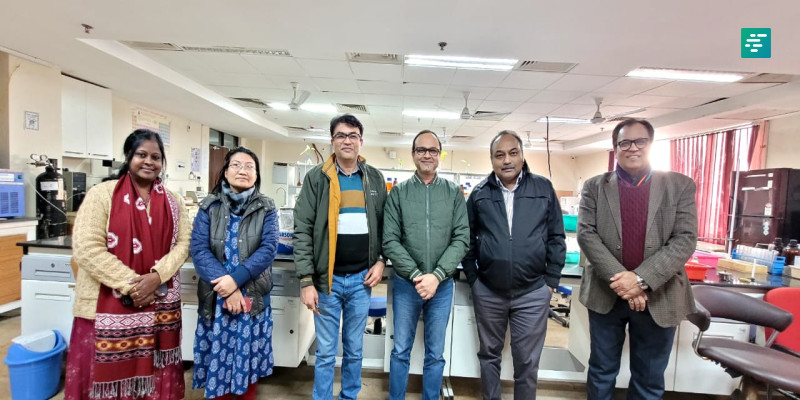
Environmental Sciences Department of CUSB receives Rs. 1.10 crore DST – FIST grant to study pollution, climate change and ecological studies
- Campus Updates
- 05 Jan, 2025
- 702
The research driven Central University of South Bihar (CUSB) has another remarkable achievement to its kitty. The well-equipped Department of Environmental Science (EVS) of Central University of South Bihar (CUSB) has received a massive funding of Rs. 1.10 crore from the Ministry of Science and Technology, Government of India under the DST Fund for Improvement of S&T Infrastructure (FIST) scheme. CUSB Vice-Chancellor Prof. Kameshwar Nath Singh and Registrar Prof. Narendra Kumar Rana have congratulated the department on this achievement. Prof. K. N. Singh, VC, CUSB expressed happiness over receiving the grant and expressed hope that the University would be able to make a big contribution to study the weather, climate change and other environmental phenomena related to the region. In turn this will be a great contribution towards the nation and Developed India@2047 mission.
CUSB Public Relation Officer (PRO) Mohammad Mudassir Alam said that 1.10 crore DST – FIST Project duration is five (5) years. The grant is given for setting up the wet and dry laboratory at the department of EVS to carry out the study on water, soil and air pollution, climate change and ecology.
Expressing happiness Prof. Pradhan Parth Sarthi, Head, EVS and Dean, School of Earth, Biological and Environmental Sciences said that this is the combined efforts of faculty members namely, Prof. Ram Kumar, Dr. Rajesh Kumar Ranjan, Dr Prashant, Dr. N. L. Devi and Dr. Soma Giri. Further he said that the Scheme “Fund for Improvement of S&T Infrastructure (FIST)” of Department of Science and Technology (DST) is intended to provide basic infrastructure and enabling facilities for promoting research and development (R&D) activities in new and emerging areas. The scheme provides optimal infrastructure facilities for post-graduate and higher research, such as, renovation of existing laboratory space, modernization of laboratories, up-gradation of existing facilities, networking & computational facilities including software & databases, scientific & technical books, maintenance & refurbishing of existing and new facilities etc. It is considered as complimentary support for enabling research activities more effectively and efficiently in the departments and centers of the academic institutions.
